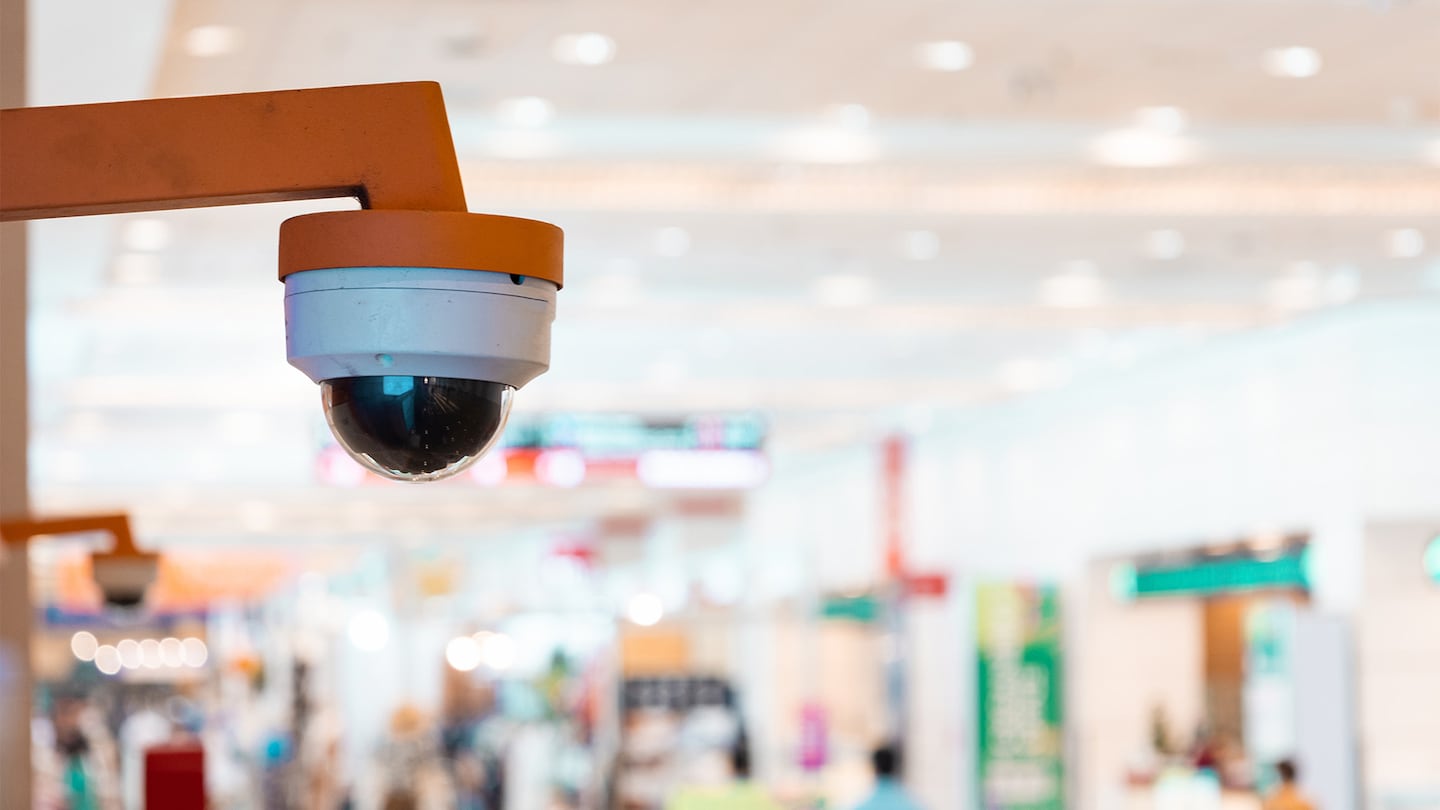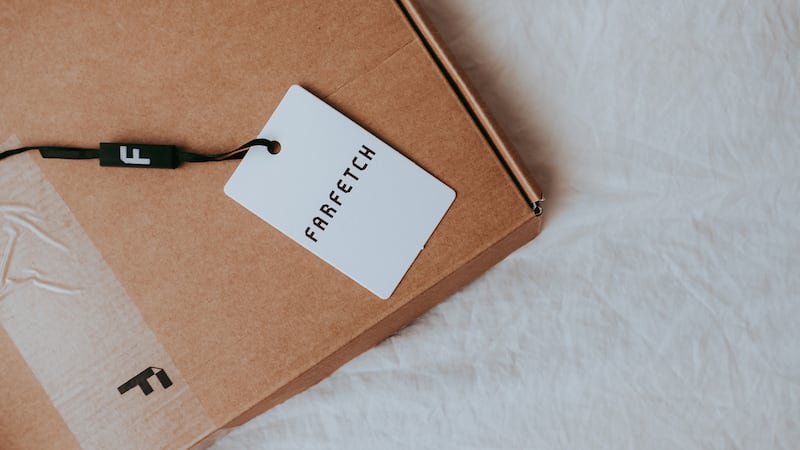
The Business of Fashion
Agenda-setting intelligence, analysis and advice for the global fashion community.

Agenda-setting intelligence, analysis and advice for the global fashion community.

The retail industry’s instinct is to downplay shoplifting and other crimes. While “shrinkage” represents a multi-billion-dollar annual problem, companies don’t want shoppers to worry they’ll brush up against criminals while browsing for pants or lipstick, let alone witness a full-on heist.
Recent events have forced the issue to the top of the industry’s agenda, however.
Last month, a group of armed robbers stole up to €15 million ($15.8 million) worth of jewellery from a Piaget store in the Place Vendôme area of Paris. Two weeks later, a Nordstrom store in California was robbed of about $100,000 in merchandise by a mob of thieves. On Sept. 17, Balmain’s Olivier Rousteing posted on Instagram that hijackers had stolen dozens of items from his yet-to-be-shown Spring/Summer 2024 collection.
Companies have mostly responded by locking away certain items in stores and quietly upping security protocols. This week, two big retailers took more drastic action. Target announced it would close nine stores in October, citing rising theft. H&M chief executive Helena Helmersson said the company is considering increasing security in its US stores due to the rise of shoplifting.
ADVERTISEMENT
It’s a departure from retail’s standard protocol when it comes to security: make sure guards and other unpleasant measures are out of sight of customers.
“We cannot continue operating these stores because theft and [organised] retail crime are threatening the safety of our team and guests, and contributing to unsustainable business performance,” Target said in a statement Thursday.
Also this week, the National Retail Federation, a US trade group, released its annual survey on retail security. It found that 88 percent of retailers — including apparel, grocery and speciality stores — said they have observed shoplifters to be more aggressive and violent compared to last year. Roughly two-thirds of respondents said they’ve seen more violence and aggression involving organised retail crime rings, where groups of thieves steal large amounts of merchandise to resell online.
There’s no one reason for the uptick in retail crime.
The economy is a factor. Inflation can put previously affordable goods out of reach for more consumers, creating an incentive to steal them. Prices for some of the most appealing luxury goods, including jewellery and handbags, have soared in recent years, making them even more tempting targets for thieves.
In the US, pandemic-era social benefits such as food assistance, eviction bans and the expansion of Medicaid have largely expired in the past year, leaving millions of Americans more exposed to poverty, which can lead to an uptick in property crime.
Violent crimes in general are elevated compared to 2019, data collected by the Council on Criminal Justice shows, though robberies fell in the first half of 2023 compared to the first half of 2022.
Changes to how retail works may also be fuelling crime. Thieves can now sell stolen merchandise on any number of resale sites. The NRF warns that leaders of organised theft will typically identify specific merchandise — items that will be coveted in the secondary market — for the other participating thieves to steal.
ADVERTISEMENT
While some retailers say they’ve experienced a higher rate of violent crime lately, retail shrink — a term that refers to the general loss of inventory due to theft and other causes — has remained relatively stable in the past few years.
In 2022, the average shrink rate increased to 1.6 percent from 1.4 percent in the previous year, but the number is in line with rates seen in 2019 and 2020, the latest NRF study found.
But a number of retailers, including Nordstrom and sporting goods chain Dick’s, said in recent earnings calls that shrinkage has hurt earnings and profit.
The bigger concern is over safety, as Target highlighted in its recent announcement.
“The current landscape of theft and violence across retail has an impact on both
associates and consumers,” the retailer said in a statement. “The inability to hire and retain associates, the inability to maintain inventory stolen on a daily basis, and environments prone to violence cause concern over associate and consumer safety.”
According to the NRF, retailers say the most successful security measures include CCTV and video surveillance; lock cases; a type of transaction analysis called exception-based reporting that identifies exceptional activity including internal theft; hiring loss prevention personnel; and hiring off-duty officers.
Target said it had invested in a number of the measures above, including security guards, safety locks, anti-fraud software and employee training, but none has been fully effective.
ADVERTISEMENT
“Despite our efforts, unfortunately, we continue to face fundamental challenges to operating these stores safely and successfully,” Target said in regard to the nine stores it will close.
The INFORM Consumers Act, a federal law that went into effect earlier this year, requires online marketplaces to identify counterfeit vendors and illicit sellers or face fines. The law was championed by the NRF and other retail groups, but it’s too soon to tell whether it’s having its intended effect.
Some have advocated lowering the threshold for when a theft is considered a felony rather than a misdemeanour, which generally does not result in a prison sentence (the line in many states is currently $2,500). Critics point out that sending more offenders to overpopulated prisons wouldn’t offer a sustainable solution and would disproportionately affect already disadvantaged communities.
Ultimately, there’s no single measure that will prevent retail crime. Retailers can work together with local and federal agencies to support task forces created to tackle the problem, and with lawmakers to strengthen prevention measures. But they need to balance that against the people those measures are likely to affect, who are often also their customers.
Crime is not just a matter of law and order, but a reflection of culture and society. Unfortunately, the destabilising effects created by Covid-19 continue to be felt.
THE NEWS IN BRIEF
FASHION, BUSINESS AND THE ECONOMY

EU antitrust regulators set a deadline for the Farfetch, Richemont deal. EU antitrust regulators will decide by Oct. 20 whether to clear luxury e-commerce company Farfetch’s acquisition of a stake in online fashion retailer YOOX Net-A-Porter (YNAP) from Richemont, a European Commission filing showed. Farfetch would initially acquire a 47.5 percent stake from Switzerland-based Richemont.
The US sues Amazon for breaking antitrust law and harming consumers. The lawsuit had been expected after years of complaints that Amazon and other tech giants abused their dominance of search, social media and online retailing to become gatekeepers of the most lucrative aspects of the internet.
Hollywood screenwriters reach a deal to end a five-month strike. The Writers Guild of America, which represents more than 11,500 Hollywood scribes, said Sunday it reached the deal with the Alliance of Motion Picture & Television Producers, the studios’ bargaining group. The agreement, if approved by the guild members, will end a strike that began on May 2.
French prosecutor probes transactions involving Bernard Arnault and a Russian businessman. The Paris public prosecutor’s office said that a preliminary investigation had been launched in 2022 and confirmed it was attached to transactions involving the LVMH owner and Russian businessman Nikolai Sarkisov.
Nike misses quarterly sales estimates as demand tapers. The company posted total revenue of $12.94 billion in the quarter, missing analysts’ estimates of $12.98 billion, according to LSEG data.
H&M sees its September sales slide and hires more security as shoplifting rises in the US. September sales would be down 10 percent year-on-year measured in local currencies. Chief executive officer Helena Helmersson said shoplifting has been a particular problem in the US, and the retailer is looking at taking steps such as increasing security in its stores.
Sycamore to take apparel retailer Chico’s FAS private for nearly $1 billion. Shareholders of Chico’s will receive $7.60 per share, representing a 65 percent premium to the stock’s last close. Sycamore is known to bet on retail and consumer investments and has a stake in department store operator Belk, discount retailer Dollar Express and mall and web-based speciality retailer Hot Topic.
UK fashion retailer Asos expects profit at the low end of guidance as overhaul falters. The British online fashion retailer reported a 15 percent fall in fourth-quarter sales and forecast earnings around the bottom of its guided range but said it was making progress with its turnaround plan.
Style Capital acquires Soeur. Soeur’s previous investment partner, French investment fund Experienced Capital, which held a minority stake in the brand, will exit the company with the new deal. Under its leadership, Style Capital plans to expand Soeur’s wholesale presence and into new international markets.
Target to shut nine stores across four US states amid rising retail crime. The move, effective Oct. 21, will see the closing of one store in New York City, two in Seattle, three locations across the San Francisco and Oakland markets and three in Portland.
US retailers’ financial losses jump as retail crime escalates. In 2022, inventory “shrink” as a percentage of total retail sales accounted for $112.1 billion in losses, up from $93.9 billion in 2021, according to a report by the National Retail Federation (NRF), a trade group representing US retailers.
THE BUSINESS OF BEAUTY

E.l.f. Beauty banks on Jennifer Coolidge again. The company announced its first collaboration with Jennifer Coolidge, called the Dirty Pillows Lip Kit, featuring a lipstick, liner, gloss and mirror for $25; the product will be available exclusively on the brand’s e-commerce site.
Coty lists on Euronext Paris. The New York-based parent of CoverGirl and Kylie Cosmetics made its debut on the Paris Stock Exchange today, offering 33 million common shares at €10.28 ($10.80).
PEOPLE

Kate Lewis departs Hearst Magazines, Lucy Kaylin named editorial director. Most recently, Kaylin served as senior vice president of content for Hearst Magazines, and prior to that, was the editor-in-chief of O, the Oprah Magazine.
Donatella Versace hits out at the Italian government’s anti-gay policies. Gay rights activists praised her for clearly challenging the government’s actions, but called on the entire fashion community to do more.
MEDIA AND TECHNOLOGY

China’s e-commerce discount race to the bottom puts incumbents under pressure. Low-cost platforms in China, as well as multinational companies shipping from the country, look set to shape the year’s final quarter — one that included the all-important holiday season, as well as China’s largest shopping festival.
TikTok shopping ambitions face blow as Indonesia plans curbs. Indonesia is prohibiting social media companies from facilitating direct e-commerce payments on their platforms, Trade Minister Zulkifli Hasan said Monday. The move, directed at ByteDance Ltd.’s TikTok, means companies will only be able to advertise products but not conduct direct transactions.
Alibaba’s logistics arm files for a $1 billion-plus IPO. The Hong Kong exchange confirmed that the company can proceed with its proposed Cainiao spinoff and IPO. Hangzhou-based Alibaba intends to retain more than 50 percent of the unit’s shares and keep Cainiao as a subsidiary, the filing said.
Compiled by Sarah Elson.
Dick’s Sporting Goods saw reduced profits in the second quarter of the year, blaming an increase in retail theft, also called “shrink” or “shrinkage” in the retail industry.
Target said on Tuesday it would close nine stores across four US states, including California, citing that theft and organised retail crime was threatening the security of the retailer’s employees and customers.
Organised crime rings in New York, San Francisco, Los Angeles and Houston are targeting retail inventories, causing more financial loss, according to a report by the National Retail Federation (NRF), a trade group representing US retailers.
Malls across the US have been ‘flash robbed’ by groups of about 20 to 30 suspects stealing retail merchandise.
US retail sales and producer prices both rose in August by more than forecast, driven by higher fuel costs that risk tempering household spending and keeping inflation elevated.

Cathaleen Chen is Retail Correspondent at The Business of Fashion. She is based in New York and drives BoF’s coverage of the retail and direct-to-consumer sectors.
Designer brands including Gucci and Anya Hindmarch have been left millions of pounds out of pocket and some customers will not get refunds after the online fashion site collapsed owing more than £210m last month.
Antitrust enforcers said Tapestry’s acquisition of Capri would raise prices on handbags and accessories in the affordable luxury sector, harming consumers.
As a push to maximise sales of its popular Samba model starts to weigh on its desirability, the German sportswear giant is betting on other retro sneaker styles to tap surging demand for the 1980s ‘Terrace’ look. But fashion cycles come and go, cautions Andrea Felsted.
The rental platform saw its stock soar last week after predicting it would hit a key profitability metric this year. A new marketing push and more robust inventory are the key to unlocking elusive growth, CEO Jenn Hyman tells BoF.